5 Laws and Proposals Every Business Needs to Know
Setting carbon reduction targets is far from new, and companies have been doing so since the early 2000s. But doing something to decarbonize? Now that’s a novel idea.
As sustainability and ESG reporting continue to gain importance among stakeholders, senior management, regulators, and investors, companies are under the gun to adopt controls and governance processes to manage the collection, review, and reporting of sustainability information. But not without a regulatory push. According to ESG data assessed by the Harvard Business School, sustainability practices in business are more likely to be replicated by industry peers when there is little doubt around regulations. To get on the same page, companies need to understand what is happening in their value chains and form multifunctional teams with sustainability know-how, a knack for risk management, and innovative technology.
The Importance of Regulatory Standards for Sustainability in the Fashion Industry:
Why Set Regulatory Standards in the First Place?
Firstly, the CEO of Zara, Marta Ortega Pérez, was quoted in the Financial Times saying that Zara does not produce fast fashion. In actuality, the term "fast fashion" was coined in 1989 by the New York Times to describe Zara's business model. This makes it difficult for other fashion companies to implement sustainable practices and take initiative when one of the biggest culprits in textile waste, resource use, and over-production won’t come clean.
Since we can’t get the kids to clean up their rooms without taking away their 7.7 billion dollars in personal wealth, regulators are stepping in. And research tends to agree. According to the study, The Effects of Mandatory and Voluntary Regulatory Pressures on Firms’ Environmental Strategies, “mandatory regulation typically has a strong and positive influence on firms’ environmental performance, studies of the effects of voluntary pressures demonstrate that by themselves they are unlikely to bring about significant improvement in environmental outcomes” (JA Aragòn-Correa, 2020).
Secondly, consumers need credible environmental claims and labels to make informed purchasing decisions. This purchasing power also boosts the competitiveness of businesses that prioritize sustainability. Regulations and standardized sustainability initiatives also increase a company's confidence and international trading capacity, promoting a circular, clean, and climate-neutral economy for a more eco-friendly world.
But businesses, especially in the fashion sector, are at different stages in this process. There is an impetus for experts with the right tools and technology to successfully implement impact assessments and manage sustainability issues across a value chain. If companies are serious about addressing the challenges to substantiate their green claims, they need to understand how the global regulatory landscape is shaping up.
Here are a few of the top innovative and game-changing proposals and laws businesses and consumers need to know about and how digital solutions drive change in the right direction.
Digital Product Passports:
What is a Digital Product Passport and How Does it Improve Traceability?
A barcode doesn’t cover it anymore.
The Ecodesign for Sustainable Products Regulation (ESPR) proposal is part of the EU's Circular Economy Action Plan. A key component of its sustainable and circular textiles strategy is the intended mandate for Digital Product Passports (DPPs). These digital IDs will be required for every item manufactured across the entire value chain, extending to all steps from raw data on material extraction, production, recycling, and more.
From the ESPR: The new “Digital Product Passport” will provide information about products’ environmental sustainability. It should help consumers and businesses make informed choices when purchasing products, facilitate repairs and recycling, and improve transparency about products’ life cycle impacts on the environment.
The DPPs will most likely be accessible via QR codes on physical or digital garment labels in the EU market. These product-specific QR codes are an essential step towards circularity to provide valuable data on the use phase of a product. The verifiability of environmental substantiation of products will pull back the greenwashed curtain and incentivize brands to improve the sustainability of their operations.
Product label tools like RFID, QR codes, or NFC have been in place to streamline orders, stock, and distribution. Their clear benefit and integration have done the legwork to improve supply chain transparency.
In an article for Just-Style, ‘Put a ring on it: Fashion circularity must be more than a proposal,’ with a title we are envious that we didn’t think of it first, Debbie Shakespeare summarizes it perfectly: “For fashion circularity to become more than a nice idea, the industry and consumers need to get to grips with this digital ID technology, which connects a purchased item to a digital twin, or Digital Product Passport (DPP) via a digital device. Collating a verified source of truth and linking it to a garment will be a game-changer.”
Decree 2022-748 AGEC (Anti-Waste for a Circular Economy Law):
What Does the France Anti-waste Law Mean for Businesses in the EU?
We went deep into AGEC, "La Loi Anti-Gaspillage Pour Une Economie Circulaire". Still, Digital Product Passports and eco-labelling cannot be mentioned without giving AGEC another seat at the table. As of January 2023, producers with an annual turnover of more than 50 million euros and at least 25,000 units of product placed on the French market yearly must substantiate each step of their manufacturing process and make this information available to consumers. This includes information on traceability, the presence of microfibers, incorporation of recycled materials, and a few more. If any of these are missed, producers are liable to a fine of €15,000 per legal entity.
Slightly complementary to the EU Green Deal, broader EU laws will make verified environmental labelling a necessity for large clothing brands selling in France. Product information must be made available to consumers at the point of sale – online or in a shop – and available after sales.
This law came into place relatively quickly. Many apparel brands argued that due to the average production cycle, many of the garments for the incoming Spring/Summer collections are long passed production and could not be accurately labelled. As of now, no fines have been issued.
EU Green Claims Directive:
Imposing Strict Obligations on How Companies Prove Environmental Claims
The EU Commission has proposed the Green Claims Directive (GCD) to impose strict obligations on companies to accurately substantiate, verify, and communicate environmental claims. If passed, the GCD will cover a wide range of claims, and companies will have to conduct assessments and get third-party verification before using any environmental claim publicly. Noncompliance will be penalized, and environmental labels must comply with the new rules. This highlights the importance of accurately substantiating environmental claims and adequately communicating them to ensure transparency and prevent misleading marketing. Want all the details? We have a full summary in the works that will be available on the blog shortly.
New York Fashion Act:
Holding Fashion Brands Accountable for Environmental Impacts and Human Rights Violations
The Fashion Sustainability and Social Accountability Act, supported by the likes of Everlane and Stella McCartney, is a bill first proposed to New York's Consumer Protection Senate Committee in 2022 to hold fashion brands from Shein to Chanel accountable for their environmental impacts and the blatant disregard for human rights throughout their supply chains.
The bill calls for transparent and clear reporting by brands on energy, greenhouse gas emissions, water and plastic use, due diligence within their supply chains to stop labour abuse, and mandatory and realistic science-based targets for GHG emission reductions. Brands must also disclose their material production volumes to reveal how much cotton, leather, or polyester they sell.
And what if they don't comply? Companies with an annual revenue higher than $100 million can be fined up to 2% of their annual revenue over $450 million. Collected fines are, altruistically, proposed to go into a community benefit fund.
Since the Act was first proposed, it has been amended, with the new version of the Act requiring companies to also take action to cease and remediate any harmful impacts to human rights or the environment identified during the due diligence process. This is in addition to companies being required to identify, prevent, mitigate, and account for those impacts, as set out in the initial version of the Act. The revised version of the Act also requires that companies report on, and take action to, reduce wastewater generated from textile processing. This is an important feature, as the data on waste and water are critically lacking. Further, the new version of the Act provides for joint and several liability between garment workers and fashion sellers. This means that garment workers can now directly file a legal claim for lost wages against fashion brands.
The Lieferkettensorgfaltspflichtengesetz - German Supply Chain Due Diligence Act:
How the German Supply Chain Due Diligence Act (LkSG) will Impact Global Supply Chains
The German Supply Chain Due Diligence Act, known as the LkSG, went into effect on January 1, 2023. It applies to companies with at least 3,000 employees who have their head office, principal place of business, administrative headquarters or branch office in Germany. The LkSG requires companies, with respect to both their own operations and those of direct suppliers, to monitor and act on violations relating to human rights and environmental impacts. To that end, the LkSG outlines numerous due diligence obligations that a company is required to comply with, including risk analysis and management, preventative measures and remedial actions. The LkSG also mandates the establishment of a reporting mechanism, known as a "complaints procedure," which will be open to all relevant stakeholders.
The LkSG aligns nicely with the EU-adopted Proposal for a Directive on Corporate Sustainability Due Diligence (CSDDD). The CSDDD seeks to promote sustainable and responsible corporate behaviour by establishing a corporate due diligence duty on companies with respect to their own operations and their value chains, both inside and outside Europe.
Regarding penalties and their enforcement, the LkSG has put the Federal Office for Economic Affairs and Export Control (BAFA) in charge of enforcing remedial measures on businesses and ensuring compliance with the law. Trade unions can also litigate on behalf of affected parties in the supply chain, giving much-needed power to often ignored garment workers. BAFA can conduct audits and give administrative fines to companies up to a maximum of €8 million or up to 2% of annual global turnover, where the company's annual turnover exceeds €400 million. Individual contributors can face penalties up to €800,000. Although no fines or penalties have been handed out, our conversations with sustainability consultants in Germany suggest that companies sit on the sidelines and wait to see who gets hit first.
Leveraging Data and Technology:
How Data and Technology Can Improve Supply Chain Transparency
Leveraging data and innovative traceability software is imperative to substantiating environmental claims and meeting climate targets to improve supply chain transparency. But how? With automation.
This article from Forbes, ‘Fashion Supply Chain Transparency Takes Center Stage,’ identified the most significant obstacle: “It is a lot of work for suppliers to gather and manage traceability data. Without automation, ESG compliance drives costs and lowers efficiency. Spreadsheets are often the first line of attack for supply chain mapping, but they are not a scalable, long-term solution for complex, continuously evolving supply chains. They require manual data entry and updates, increasing labour costs and the change of human error. It also limits the ability to repurpose, cross-reference and analyze data.”
This is where data and AI-based solutions like Arbor can help. By providing real-time visibility and analysis of supply chain data, companies can identify areas for improvement and implement sustainable practices. Our tool enables companies to substantiate their claims with reliable and verifiable information. Whether it's the DPP, AGEC, GCD, or any other acronym OTW, the tools are out there for responsible businesses to act now instead of waiting to see what happens. Request a demo to learn more.
Measure your carbon emissions with Arbor
Simple, easy carbon accounting.
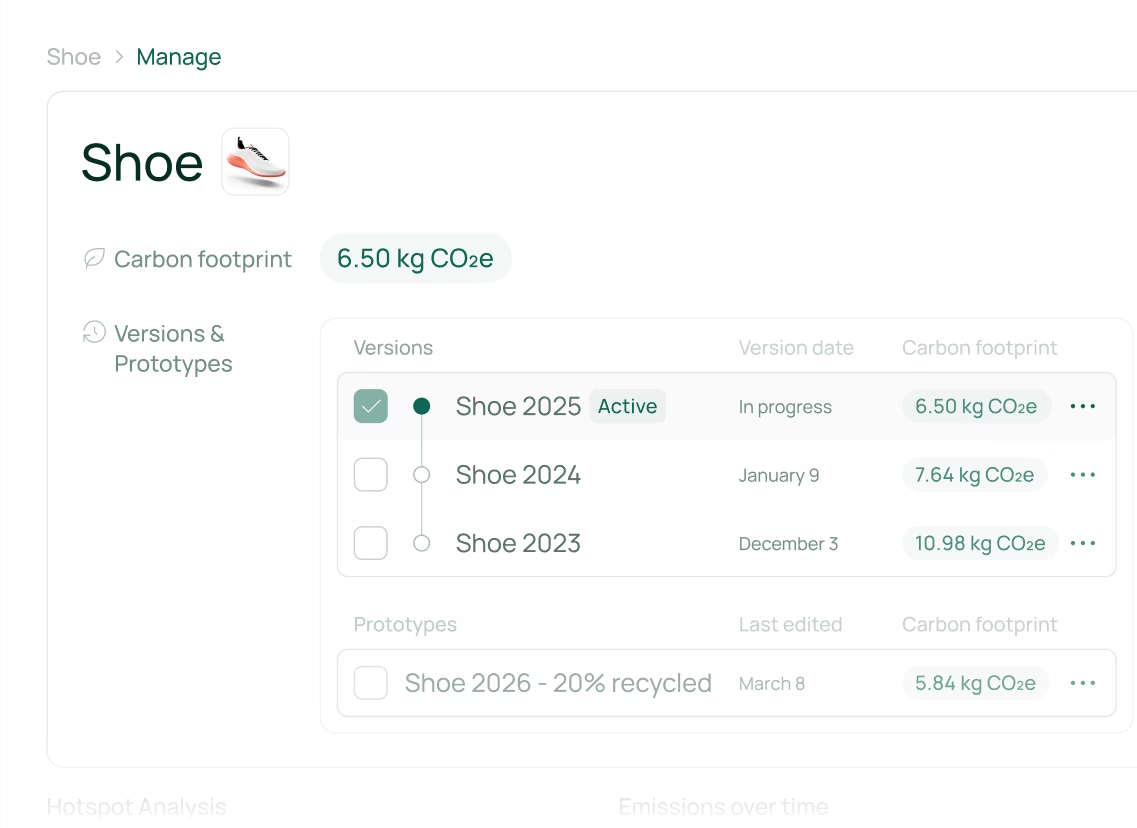



%20Directive.webp)


.webp)


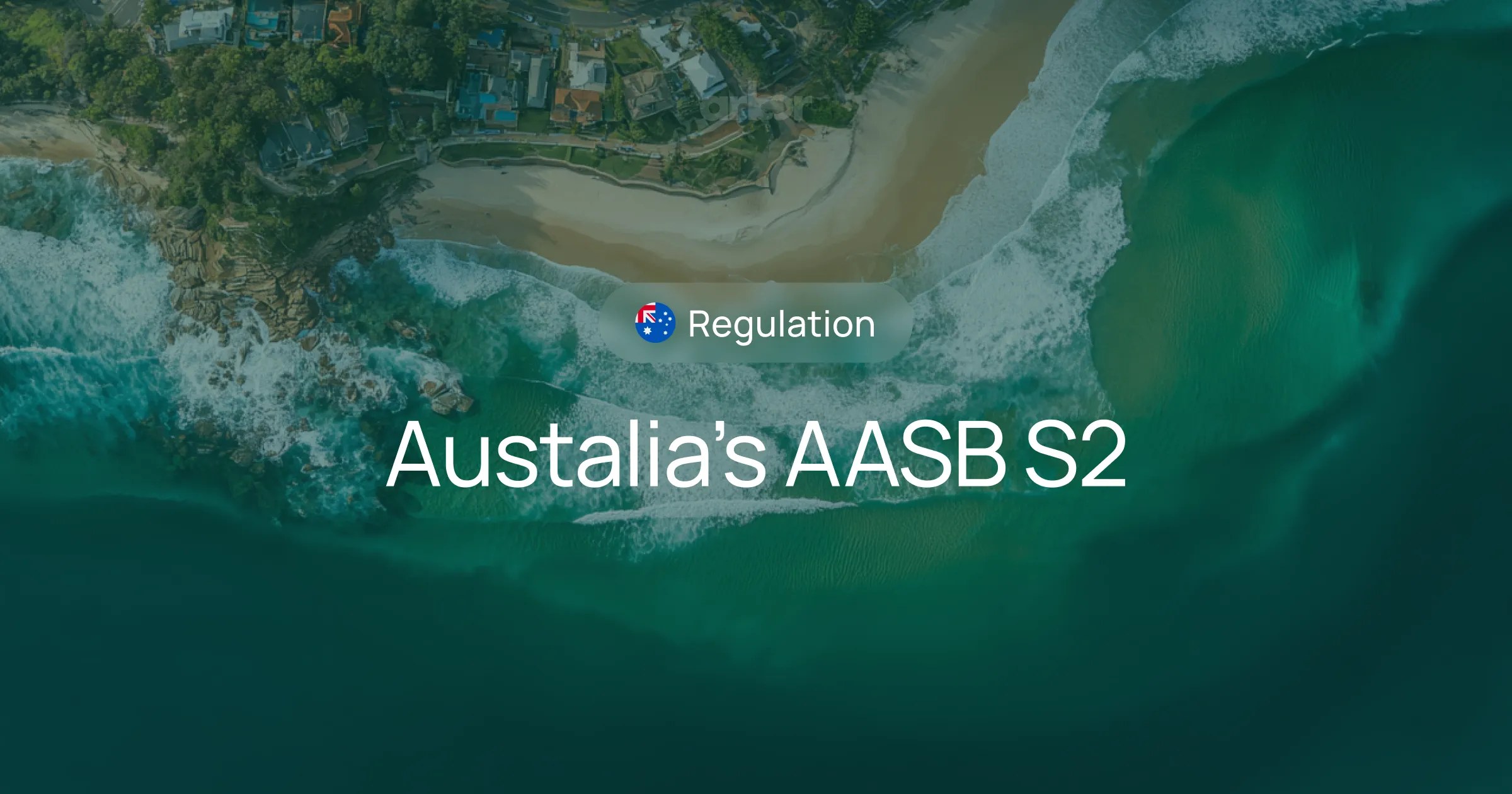
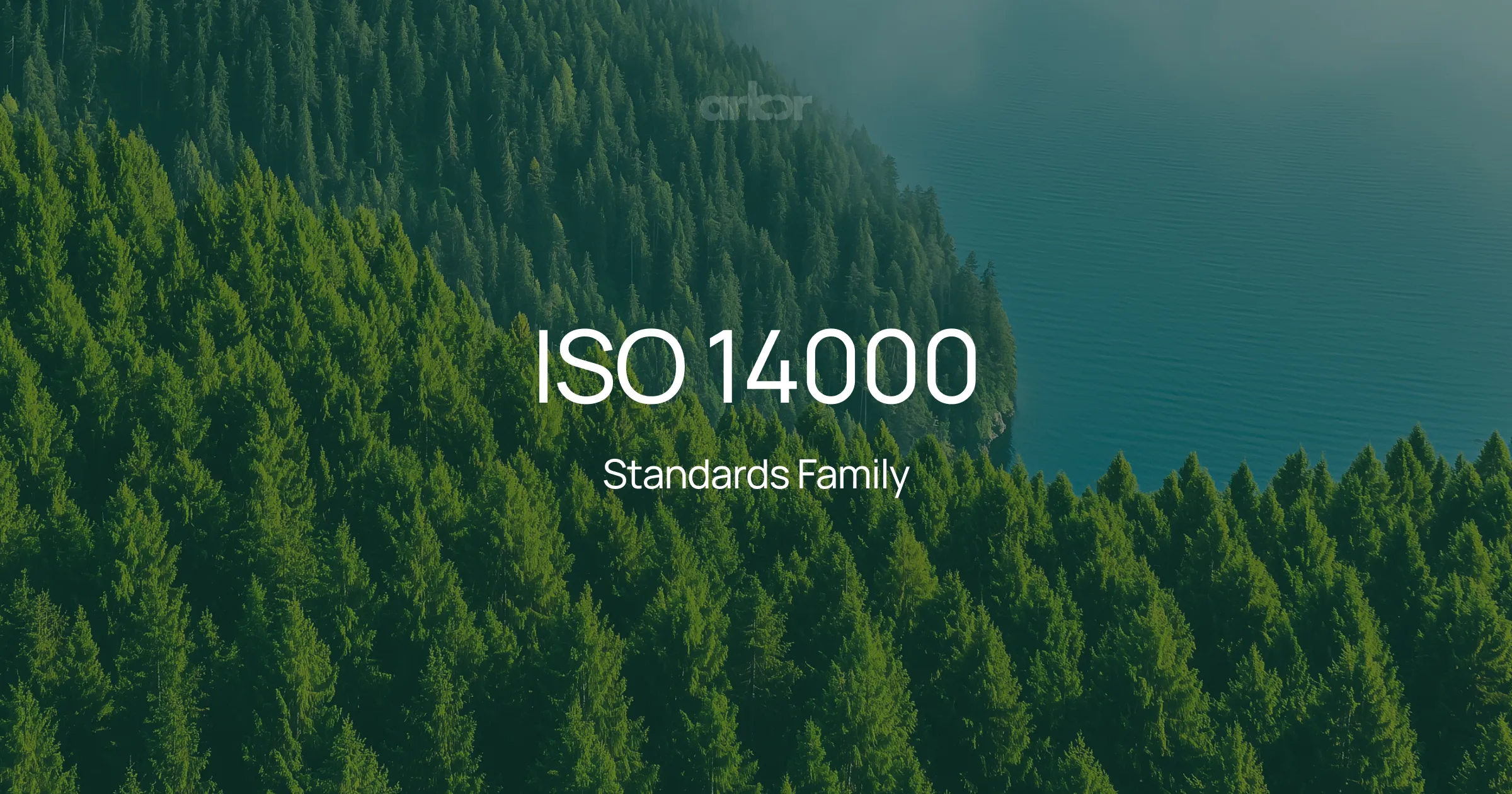
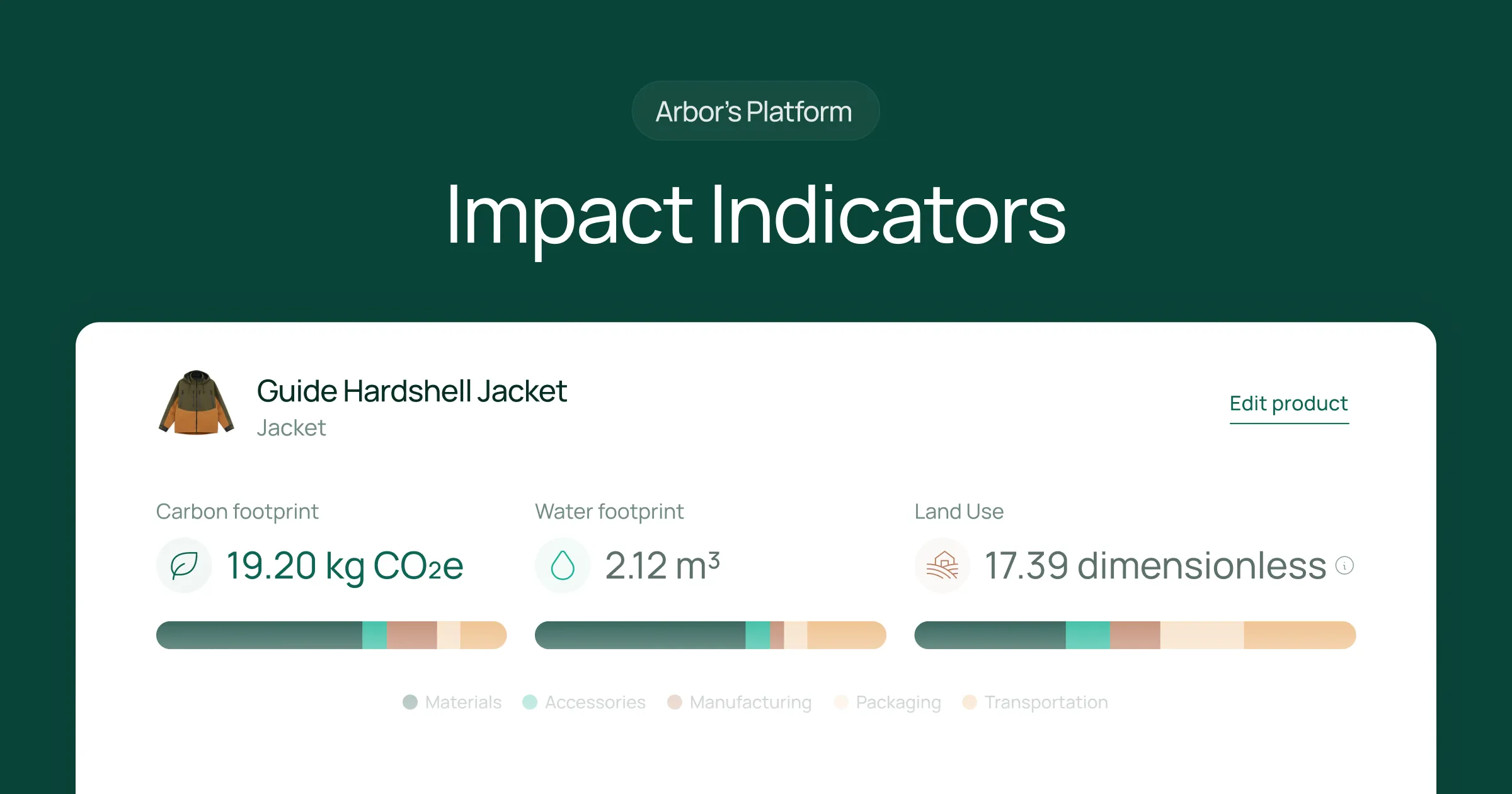
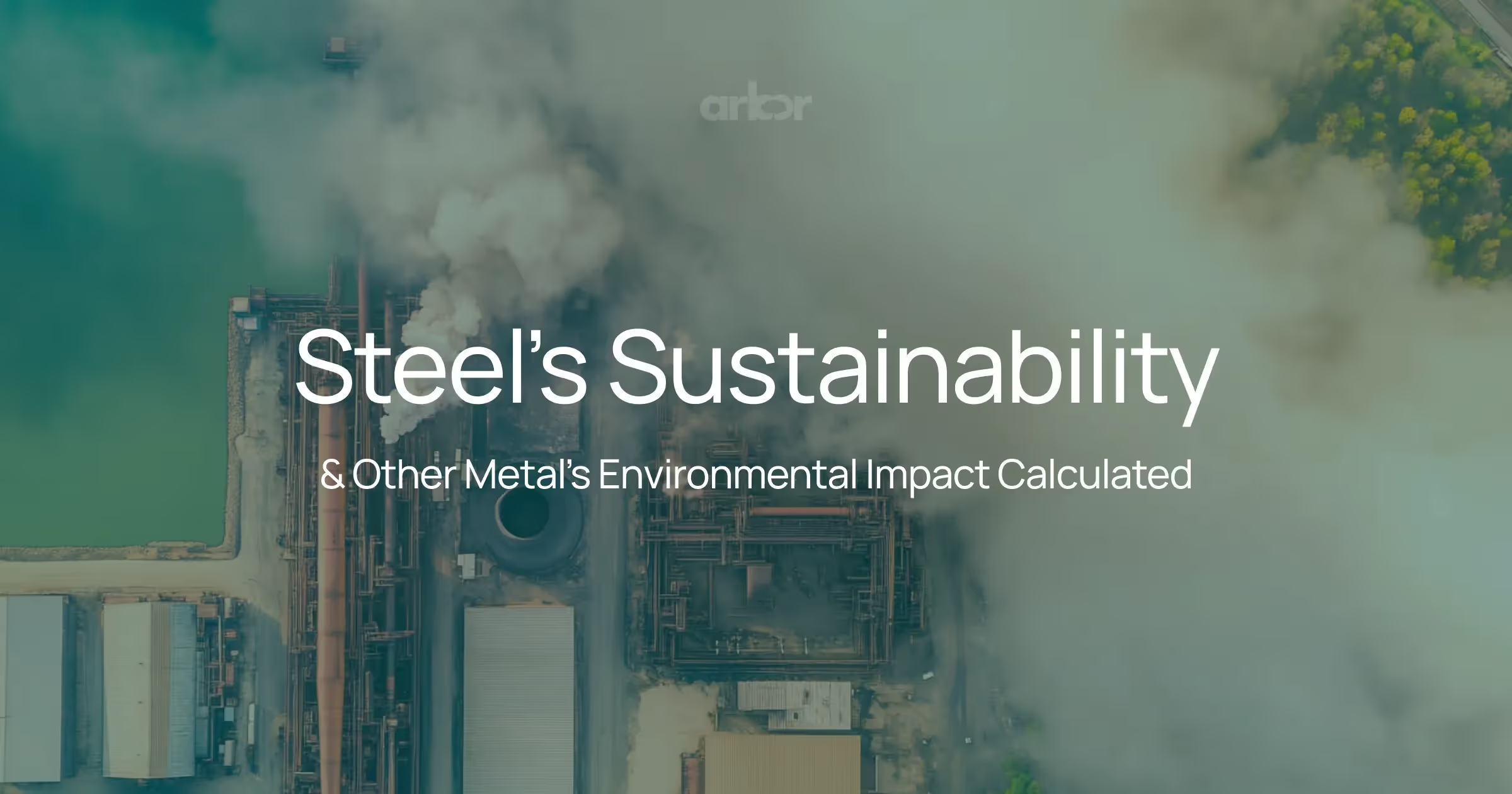

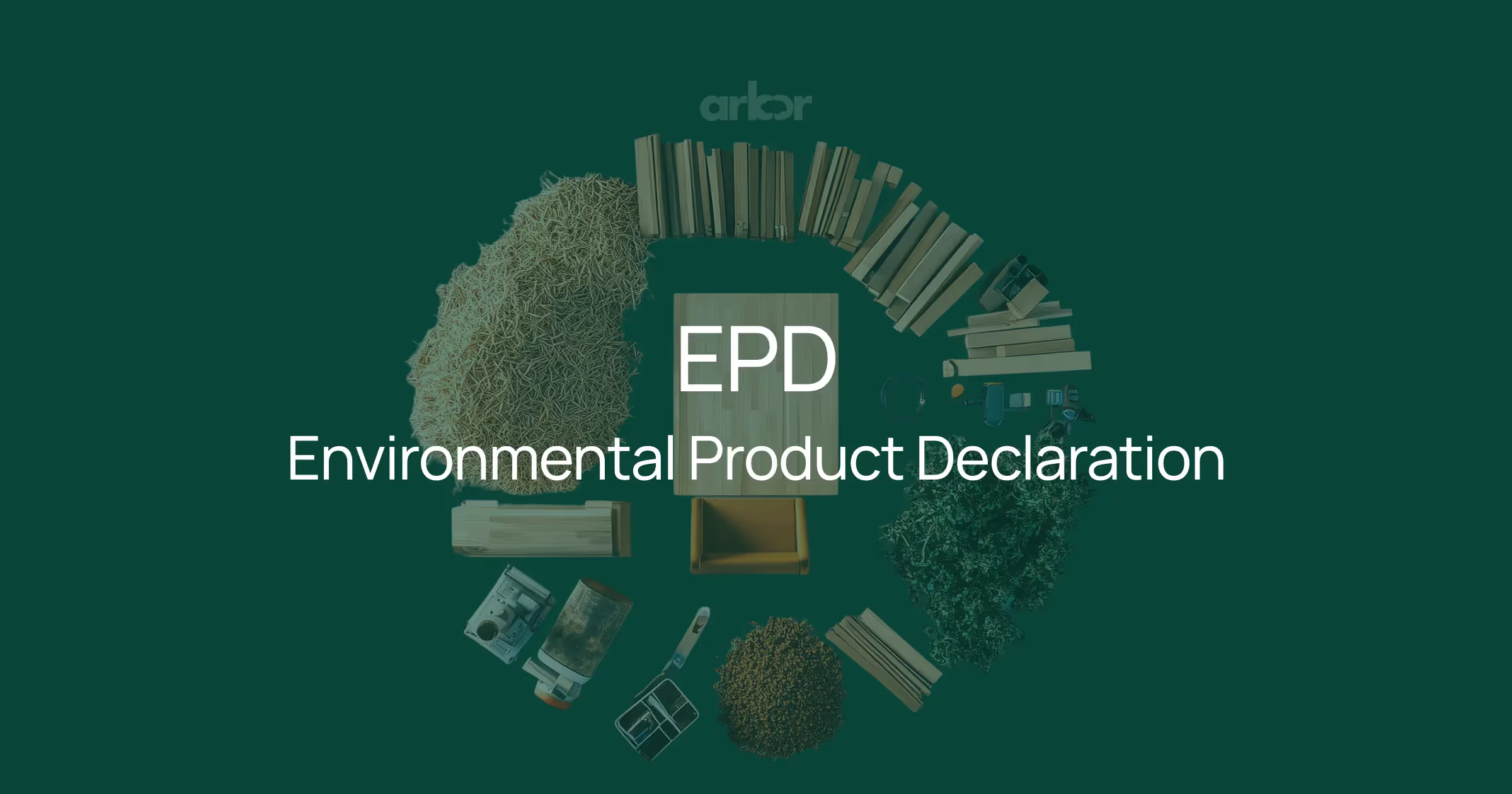



%20Arbor.avif)
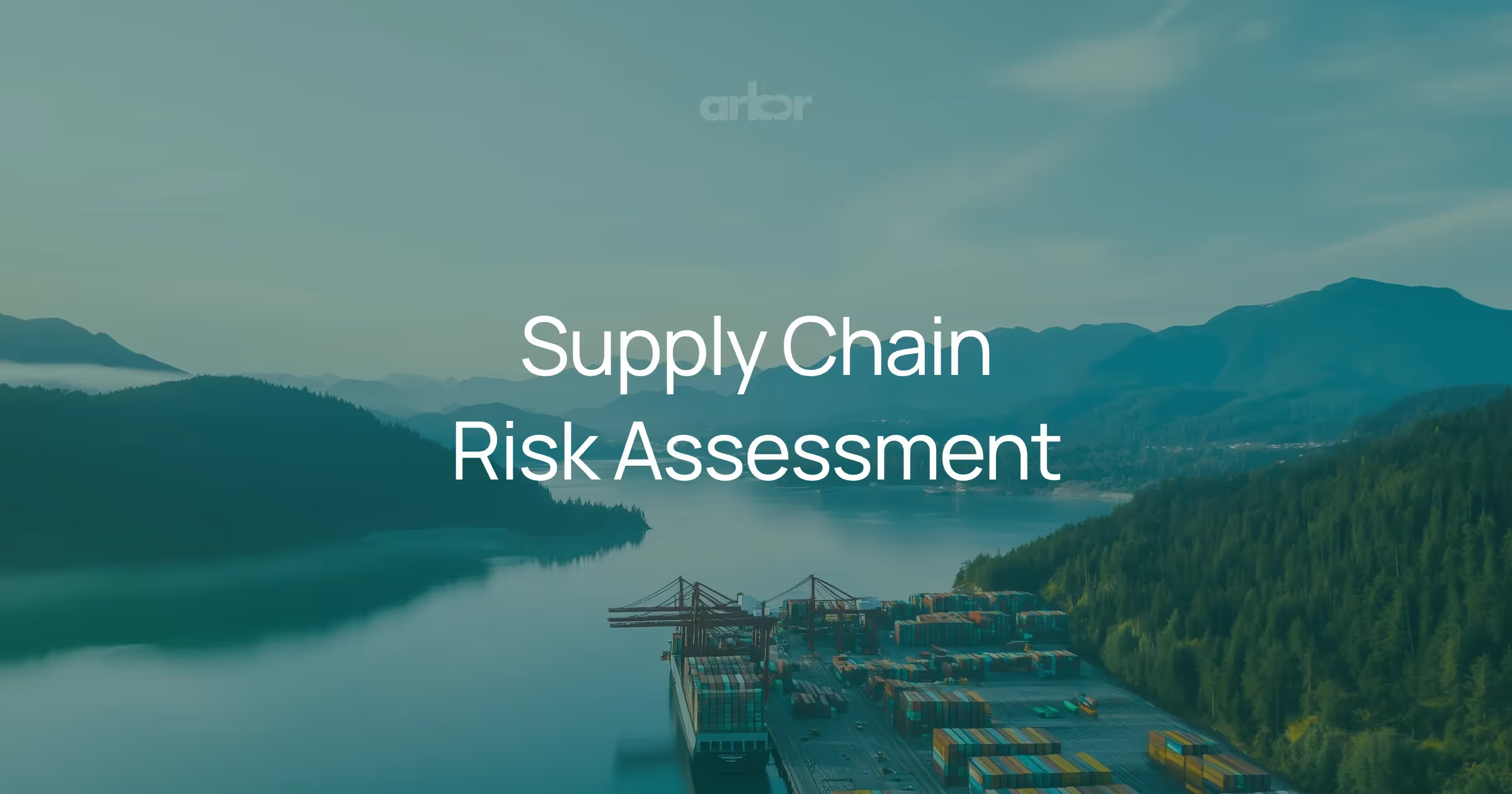




%20Arbor.avif)
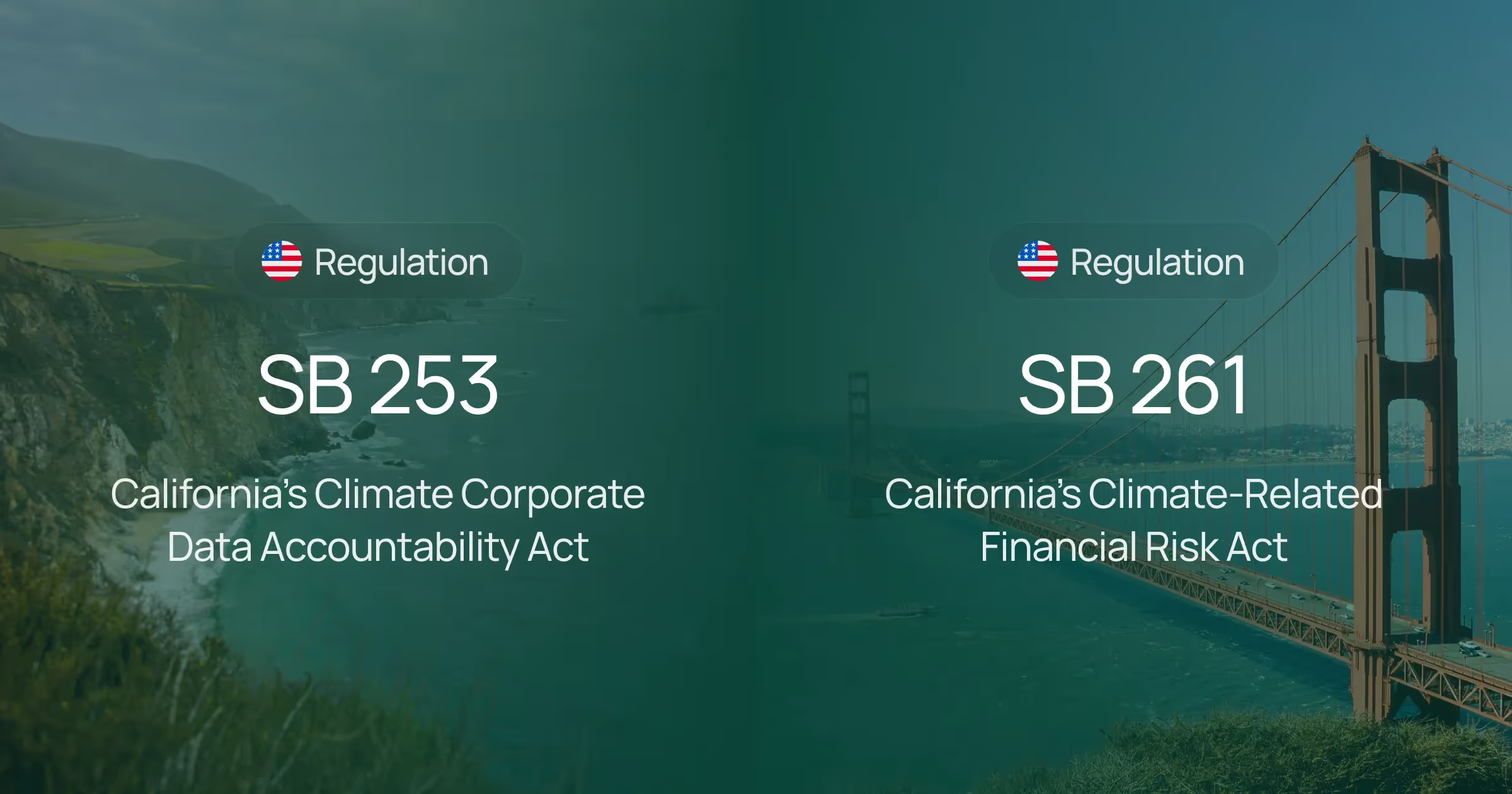

.avif)
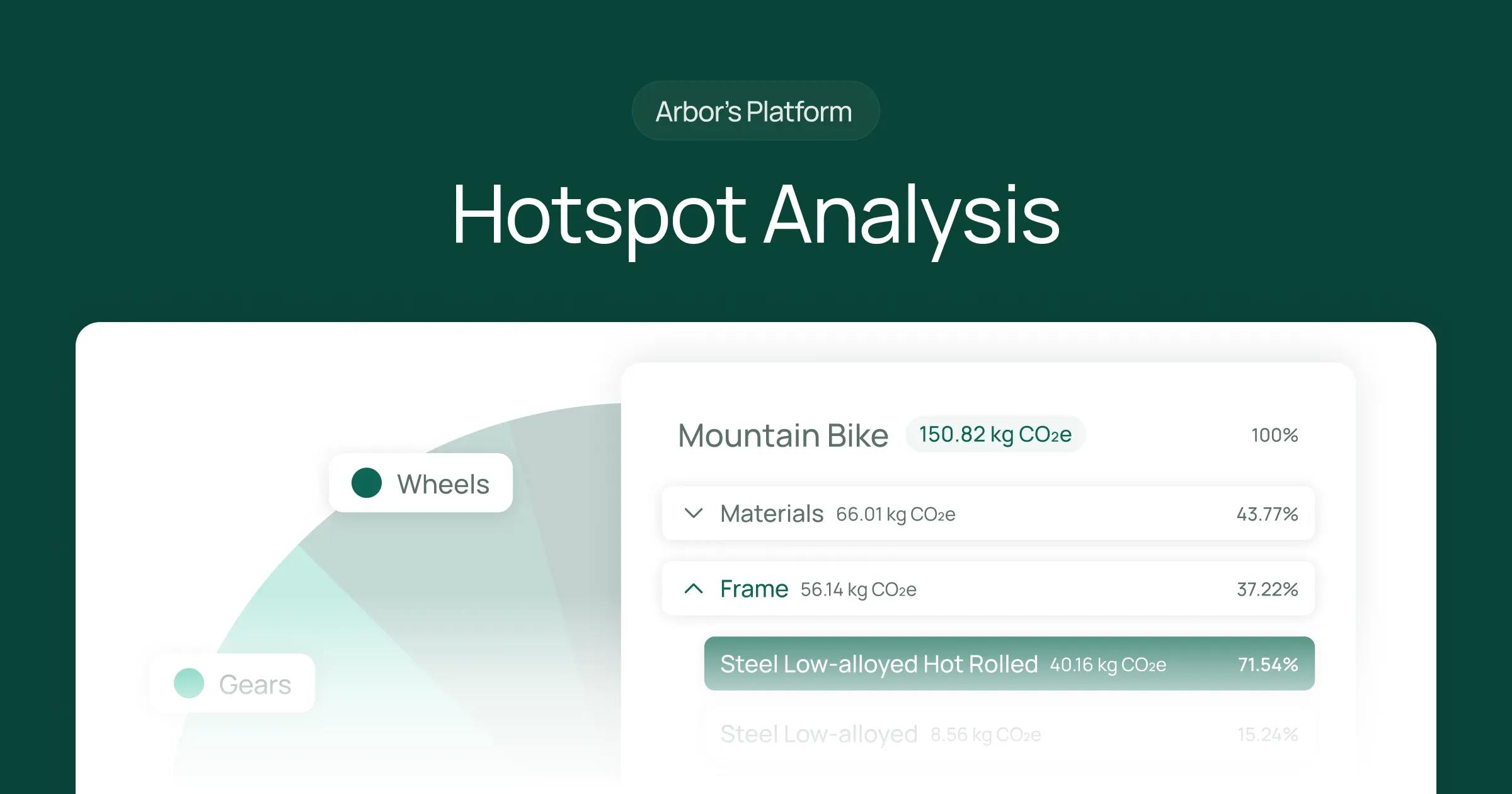

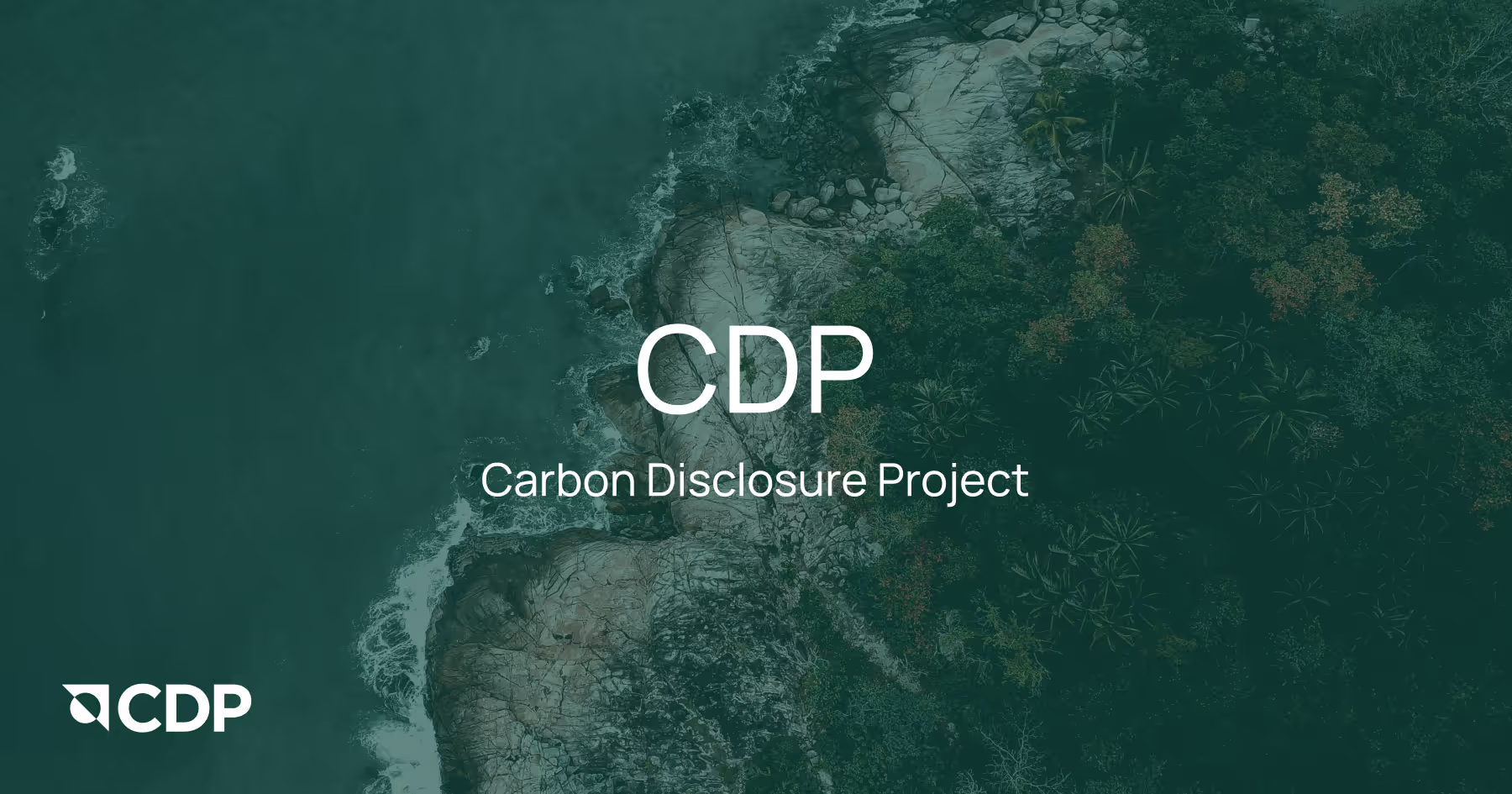


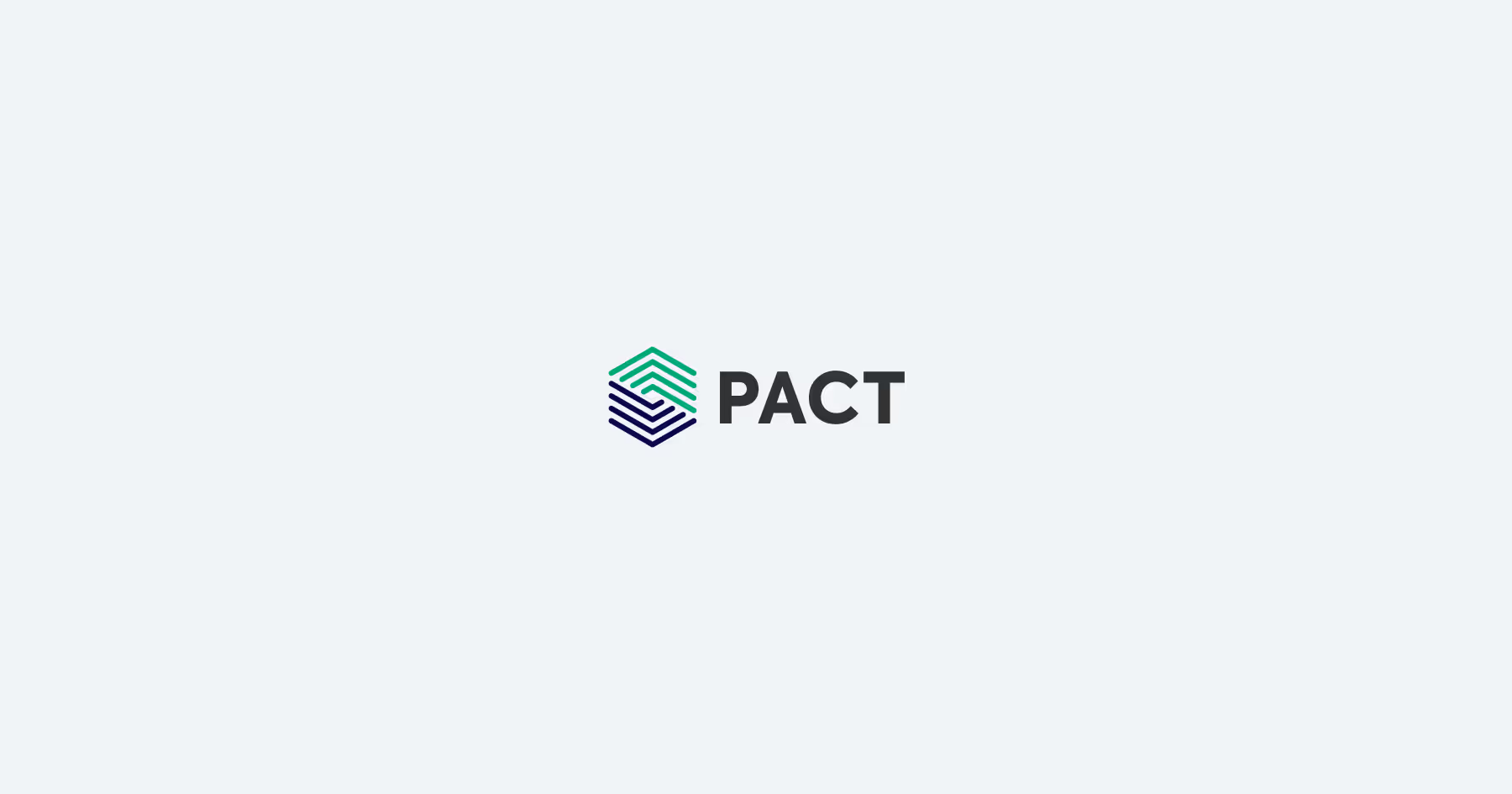
%20Arbor%20Canada.avif)
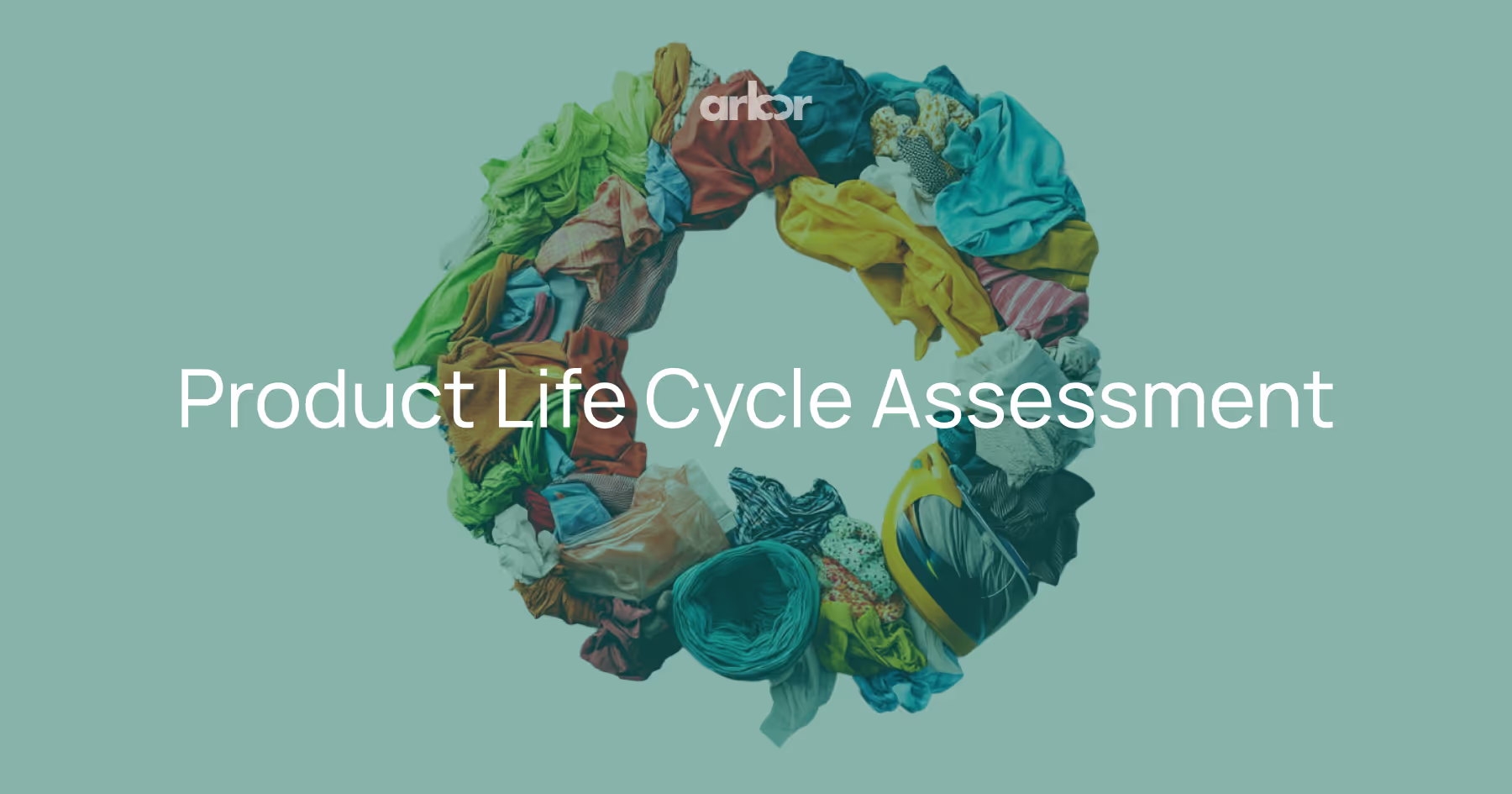
.avif)
%20Arbor.avif)
.avif)


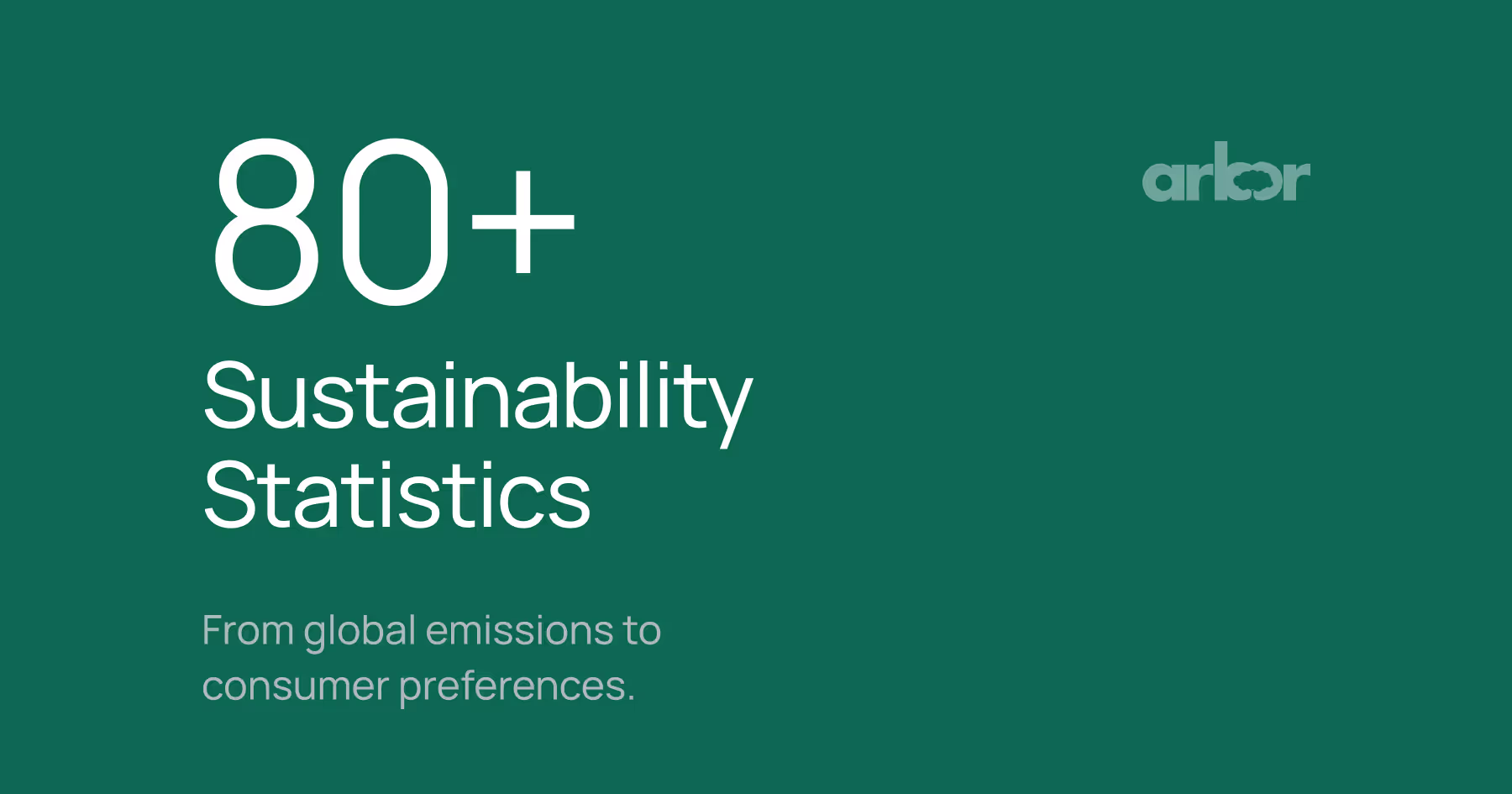



_.avif)
.avif)
%20Arbor.avif)




%20Software%20and%20Tools.avif)





.avif)
.avif)
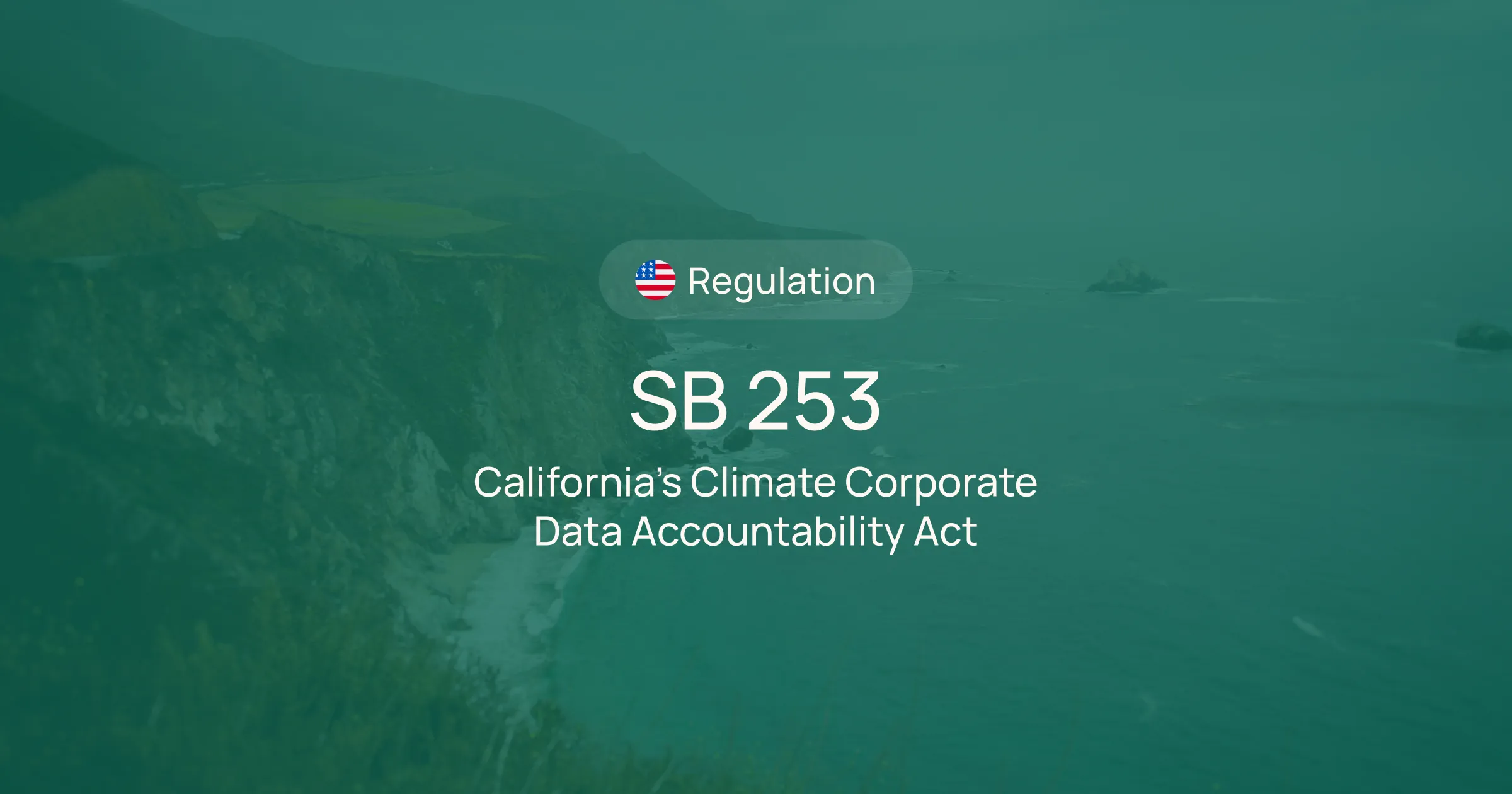



%20EU%20Regulation.avif)












.avif)


%20Arbor.avif)









_%20_%20Carbon%20101.avif)







.avif)

.avif)
.avif)









